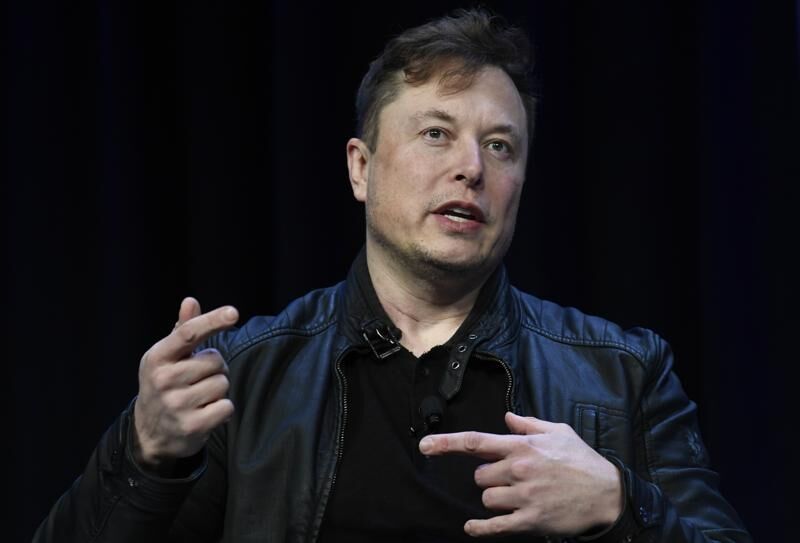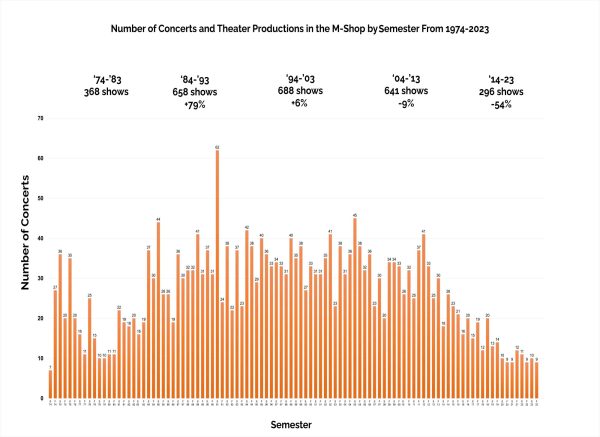Elon Musk purchases Twitter: First Amendment questions arise
Elon Musk speaks at the SATELLITE Conference and Exhibition in Washington, on March 9, 2020.
May 4, 2022
With his purchase of Twitter, Elon Musk shed a light on the question of what free speech and free discourse on Twitter entails.
Musk spent about $44 billion to gain total control of the company, paying $54.20 per share. After purchasing Twitter, he said that he wants to make the platform better and put an emphasis on free speech. In tweets and statements afterwards, Musk clarified what free speech means for him.
He said, “Free speech is the bedrock of a functioning democracy,” adding, “by ‘free speech,’ I simply mean that which matches the law.”
Musk hopes that even his strongest critics will stay on Twitter because that represents free speech, he said.
“Most things are protected from the First Amendment, including hate speech,” said Madeline Ladehoff, a junior majoring in entrepreneurship and president of the Iowa State College Democrats. “Just because it’s protected from the First Amendment doesn’t necessarily mean it should be said.”
Julie Roosa, adjunct assistant professor and First Amendment Specialist at Greenlee, said the First Amendment is designed as a stop sign for the government to interfere with freedom of speech among others.
Because Twitter is a private company, the First Amendment doesn’t apply in its simplest form, Roosa said.
For Kyle Poen, a senior in agricultural business and president of the Young Americans for Freedom at Iowa State, the main purpose of free speech can be summarized in a quote from Ronald Reagan.
“Freedom is the right to question and change the established way of doing things,” Reagan said in 1988.
Poen said as a private company, Twitter can’t be presumed to question the established way of doing things because the owners are able to use the platform as they want.
“I just think that their rules and guidelines need to be applied evenly,” he said.
Ladehoff said although Twitter can make their own rules, she hopes the platform addresses hate speech.
“It doesn’t matter what political affiliation you are, you shouldn’t be using hate speech,” she said.
Free speech is a privilege that is not restricted by law in the U.S. That is not the case in every democracy. In Germany, for example, financial penalties or even jail time up to five years are punishments for demagoguery. This includes hate propaganda against certain groups, the denial of the holocaust and the glorification of the Nazi-regime.
“We put a premium on freedom in this country,” Roosa said. “Sometimes we don’t value that freedom.”
According to DataReportal, Twitter has 436.4 million users with at least 76.9 million active users in the U.S.
Twitter is a popular platform not only to communicate with others but especially to get news. About 70 percent of Twitter users get news on the platform, according to a Pew Research Center survey. Seventy percent of these news consumers have used Twitter to access breaking news on a developing event.
Roosa said many newsrooms are owned by a few individuals, and now with Musk as an owner of Twitter, the platform doesn’t differ from a lot of other news organizations.
“I feel like just misunderstanding of the First Amendment and a lack of information about the First Amendment is what threatens our free speech more than anything else,” she said.
Roosa said that the First Amendment is non-partisan and doesn’t tilt to the left or the right, but a lot of people feel like that is not the case on Twitter. A 2020 Pew survey came to the conclusion that 73 percent of U.S. adults feel like social media sites censor political viewpoints, but the answers strongly differed between political camps.
The survey showed that 90 percent of Republicans and people who lean toward the Republican Party say it’s at least likely that social media platforms censor political viewpoints they find objectionable. Poen said that on Twitter, predominantly voices on the right have been censored.
On the other hand, 59 percent of Democrats or independents leaning toward the Democratic Party felt like political viewpoints are being censored.
Musk’s Twitter purchase has already had effects on users from both sides of the political spectrum. While famous left-leaning profiles lost a lot of followers, the follower numbers of famous right-leaning profiles spiked.
Michelle Obama lost more than 29,000 followers in the last week, according to statistics from SocialBlade. It is the first time since May 2021 that she didn’t gain followers in a week.
A similar development can be seen in Sen. Bernie Sanders’ (D-VT) follower count. The senator from Vermont lost more than 17,000 followers since April 26 and, just as Obama, it’s the first time since May 2021 that he didn’t gain followers in a week.
On the other hand, Sen. Ted Cruz’s (R-TX) followers spiked. After usually obtaining no more than 7,000 followers a week in the last year, Cruz gained almost 270,000 followers in the last week on his private account, and over 207,000 followers on his professional account.
Rep. Marjorie Taylor Greene (R-GA) experienced similar developments. Her account gained more than 230,000 followers in the last seven days, but the new ownership does not only impact follower counts.
In a Time2Play survey from April 26, 16.3 percent of the respondents said they will leave the platform when Musk’s purchase is finalized. The answers strongly differ depending on the respondent’s news watching preferences. While 28.4 percent of MSNBC watchers and 16.2 percent of CNN watchers would leave the platform, only 3.4 percent of Fox News watchers would.

















